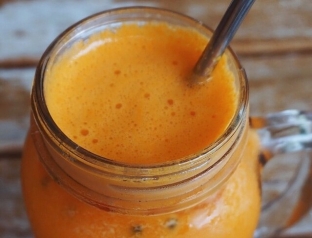The best thing you can do for your body is to saturate it with vitamins and microelements – is to eat seasonal fruits and vegetables. One of the numerous summer fruits is the nectarine. However, many bypass it, believing that it is artificially bred, therefore it is not as useful as other fruits. And they are wrong, agrees estet-portal.com. Therefore, let's figure out what are the useful properties of nectarine, and where did it come from. What can be a contraindication for its consumption?
What is a nectarine, really?
Some people unknowingly often think that nectarine – this is a kind of hybrid of fruits (plums and peaches, for example). However, the nectarine is actually a mutation product of the peach. It turns out that in the development of peach buds, certain mutations also occurred on trees; among ordinary peaches, hairless fruits appeared - nectarines.
Then people started to use this mistake of nature and grow only nectarines with their own hands. There are interesting facts about the origin of nectarine:
- Its name comes from the phrase – "food of the gods". Moreover, in China, this fruit is a symbol of long life.
- It is interesting that nectarines can appear on peach trees, but nectarine peaches do not.
- The most delicious fruits grow closer to the trunk, so nectarines are best planted in the form of small trees or shrubs.
The calorie content of this product is 48 kcal per 100 g. It contains quite a lot of carbohydrates – 11.5 g, proteins – 9.8 g and virtually no fat – 0.2g
Useful properties of nectarine
Nectarine is much healthier than the traditional peach. Its pulp is saturated with such useful substances as:
- iron,
- phosphorus,
- potassium,
- vitamins A and C,
- sodium, sulfur,
- silicon
It contains malic and citric acids, as well as glucose, fructose and sucrose. It has significantly less sugar than a regular peach. It also contains pectin, which is an important component in the fight against cancer.
In addition, nectarines can have a positive effect on:
- Gastrointestinal problems, aiding in the digestion of food,
- atherosclerosis,
- hypertension,
- nervous disorders,
- presence of cholesterol plaques.
Nectarine helps retain moisture in tissue cells. Accordingly, it is a prophylactic agent for withering & nbsp; skin and first wrinkles. It is a powerful antioxidant, helping to curb the negative effects of the environment. Accelerates metabolism.
1/4 cup fresh juice nectarine can help with performance disorders:
- cardiovascular system,
- permanent constipation,
- increased stomach acid,
- anemia and anemia.
For maximum effectiveness, it should be drunk 15 minutes before meals.

Read also: Turmeric Benefits: The Incredible Benefits of a Solar Spice
Where is nectarine used?
In addition to being eaten, nectarine has found its application in other areas:
- Pharmacology: Nectarine is used in the manufacture of ordinary activated carbon, and its kernels are also used for ointments and other medicines.
- Industry: Used as a fine timber.
- Cosmetology: used in the form of masks that can cleanse and tone the skin, as well as prevent the appearance of early wrinkles.
Nectarine face mask
We offer you one of the options for a face mask using nectarine. For her, you need to take one ripe nectarine fruit. Peel it off. Mash it well and add a tablespoon of potato starch and ½ a teaspoon of pumpkin seed oil.
Mix all the ingredients thoroughly and apply on the face, avoiding the eye area. Hold the mask for 5 minutes and wash it off with warm water. The procedure can be repeated 2 times a week. You can simply apply thin slices of nectarine on the face area, so the skin will look much fresher.
Read also: 7 healthy fruits for health and beauty
Contraindications for the use of nectarine
If you suffer from diabetes, you should still refrain from eating this fruit, as it is quite sweet. It is better not to eat nectarine seeds before heat treatment, as they contain a rather strong poison.
The skin of this fruit contains proteins that can cause an allergic reaction to nectarines. However, if you use the product after heat treatment as jam, jam, etc., then it is practically harmless.
Do you like nectarine, share your tastes with us on estet-portal.com.






Add a comment